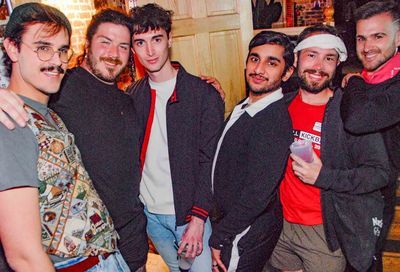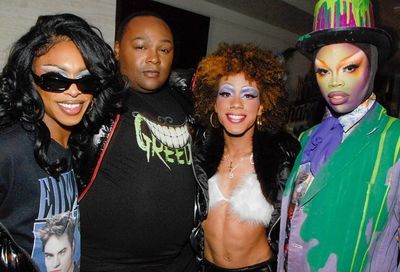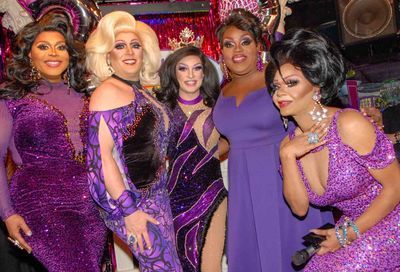Man of Words
King's language brought out the best in Americans
I love a perfect line. Whether it provokes laughter, tears, titillation, or a flash of recognition, it is something writers strive for but rarely achieve.
Many professions place a premium on wordsmiths. Advertising copy is about driving a purchase. Wendy’s: “Where’s the beef?” Nike: “Just do it.” National Airlines: “Hi, I’m Cheryl. Fly me….”
A great movie line crystallizes a character or situation. Paul Scofield in A Man for All Seasons: “It profits a man nothing to give his soul for the whole world… but for Wales?” Emily Blunt in The Devil Wears Prada: “I’m just one stomach flu away from my goal weight.”
A great song lyric captures a feeling or scene. Lorenz Hart in Pal Joey: “I’ll sing to him, Each spring to him, And worship the trousers that cling to him. Bewitched, bothered and bewildered am I.” Bruce Springsteen in “American Skin (41 Shots)”: “Well, is it a gun, is it a knife, Is it a wallet, this is your life. It ain’t no secret my friend, You can get killed just for living in your American skin.”
That last example illustrates a crossover category: the popular song with a social conscience. Most songs and movies are escapist fare, while commercial slogans compete for existing markets. In politics, the easiest appeals are those that inflame mobs, as with calls to homophobia, racism and xenophobia.
By contrast, the greatest messaging challenge is for an activist pushing an unpopular cause against violent opposition. Martin Luther King Jr. required singular courage and wisdom to lead a nonviolent movement for racial justice. His charisma was crucial; but his mastery of words set him apart. This was not immediately obvious, given his fondness for biblical metaphors that could feel archaic and overripe – his mountains of this and valleys of that.
But King knew what he was doing. His elevated language and preacher’s cadences took people out of their mundane mindset and stirred millions who had never set foot in a black Baptist church.
In launching the Montgomery Bus Boycott on Dec. 5, 1955, King carefully built toward this climax. “If we are wrong, the Supreme Court of this nation is wrong. If we are wrong, the Constitution of the United States is wrong. If we are wrong, God Almighty is wrong.” He danced on the edge of blasphemy as he steeled his listeners to embrace the righteousness of their cause and overcome their fear.
Years later, he wrote in admonition from Birmingham City Jail: “[I]f our white brothers dismiss as ‘rabble rousers’ and ‘outside agitators’ those of us who employ nonviolent direct action … millions of Negroes will, out of frustration and despair, seek solace and security in black nationalist ideologies – a development that would inevitably lead to a frightening racial nightmare.”
He wrote in Strength to Love: “Hate cannot drive out hate; only love can do that. Hate multiplies hate, violence multiplies violence … in a descending spiral of destruction.” Angry words would have been easier, but King knew that striking a common chord would change more hearts and minds.
I write this on an anniversary. Forty-eight years ago, King wrapped himself in tradition as he raised a mighty challenge. “I have a dream that one day this nation will rise up and live out the true meaning of its creed: We hold these truths to be self-evident, that all men are created equal.” Here he invoked the most powerful words of the past thousand years and brought them to life as no one had done since Abraham Lincoln at Gettysburg.
Washington has monuments to many presidents, but only one King. As imperfect as they, he earned his immortality by summoning his fellow citizens to the best in themselves.
Richard J. Rosendall is a writer and activist. He can be reached at rrosendall@starpower.net.
Support Metro Weekly’s Journalism
These are challenging times for news organizations. And yet it’s crucial we stay active and provide vital resources and information to both our local readers and the world. So won’t you please take a moment and consider supporting Metro Weekly with a membership? For as little as $5 a month, you can help ensure Metro Weekly magazine and MetroWeekly.com remain free, viable resources as we provide the best, most diverse, culturally-resonant LGBTQ coverage in both the D.C. region and around the world. Memberships come with exclusive perks and discounts, your own personal digital delivery of each week’s magazine (and an archive), access to our Member's Lounge when it launches this fall, and exclusive members-only items like Metro Weekly Membership Mugs and Tote Bags! Check out all our membership levels here and please join us today!




















